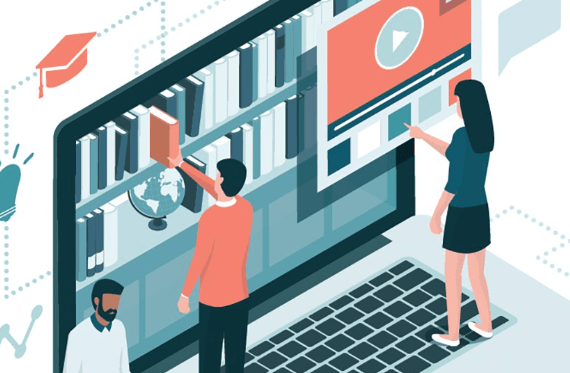The Future of Online Learning: Emerging Trends and Innovations to Watch

Online learning has transformed education, making it more accessible and flexible for learners worldwide. As technology advances, the landscape of online education continues to evolve, introducing new trends and innovations that are shaping the future of learning. This article explores some of the emerging trends in online education and how they are set to revolutionise the learning experience.
Personalised Learning Experiences
One of the most significant trends in online education is the shift towards personalised learning. With the help of artificial intelligence (AI) and machine learning, online platforms can now tailor learning experiences to individual students’ needs and preferences. Personalised learning paths can be created based on a learner’s progress, strengths, and areas for improvement. This customisation ensures that students receive the most relevant content, enhancing their understanding and retention of the material.
See also: Top Trends in Automation in 2024
Increased Use of Virtual and Augmented Reality
Virtual reality (VR) and augmented reality (AR) are becoming more prevalent in online education. These technologies provide immersive learning experiences that can simulate real-world scenarios and environments. For instance, medical students can practise surgeries in a virtual operating room, while architecture students can explore 3D models of buildings. The use of VR and AR in online courses not only makes learning more engaging but also allows for practical, hands-on experiences that were previously difficult to achieve remotely.
Growth of Micro-Credentials and Certifications
The demand for micro-credentials and certifications is on the rise as learners seek to acquire specific skills quickly. These short, focused courses offer certifications that validate a learner’s expertise in a particular area. For example, professionals looking to enhance their business acumen can pursue an online MBA, which provides comprehensive knowledge and skills applicable to various business domains. Similarly, tech enthusiasts can opt for specialised programs like an MS in Computer Science, equipping them with advanced technical skills in a relatively short period.
Emphasis on Soft Skills Development
While technical skills are crucial, the importance of soft skills cannot be overlooked. Online education platforms are increasingly incorporating courses that focus on developing soft skills such as communication, leadership, and emotional intelligence. These skills are essential for career advancement and personal development. Courses designed to improve these abilities can help learners become more effective in their professional roles and better prepared for leadership positions.
Integration of Gamification
Gamification is another trend gaining traction in online learning. By incorporating game-like elements such as points, badges, and leaderboards, educational platforms can make learning more engaging and motivating. Gamified learning experiences can enhance student participation and motivation, making the educational process more enjoyable. This approach is particularly effective for younger learners and those who thrive in competitive environments.
Expansion of Lifelong Learning Opportunities
The concept of lifelong learning is becoming increasingly important as the job market evolves and new skills are continually required. Online platforms are expanding their offerings to cater to lifelong learners, providing a wide range of courses that can be accessed at any stage of life. Whether it’s upskilling for a current job, switching careers, or pursuing personal interests, online education makes it possible to continue learning throughout one’s life.
Enhanced Collaboration and Networking
Online learning is no longer an isolated experience. Modern platforms facilitate collaboration and networking among students, instructors, and professionals from around the world. Features such as discussion forums, group projects, and virtual meetups enable learners to connect, share ideas, and work together. This collaborative environment not only enriches the learning experience but also helps build a global network of contacts.
Focus on Mental Health and Well-being
As online learning becomes more prevalent, there is a growing recognition of the importance of mental health and well-being. Educational institutions and platforms are increasingly offering resources and support services to help students manage stress and maintain a healthy work-life balance. Courses on mindfulness, stress management, and resilience are becoming common, reflecting the holistic approach to education that prioritises mental health.
Conclusion
The future of online learning is bright, with numerous trends and innovations set to enhance the educational experience. Personalised learning, VR and AR, micro-credentials, and a focus on soft skills are just a few of the developments shaping the future of education. As technology continues to advance, online learning will become even more immersive, flexible, and accessible, providing learners with endless opportunities to grow and succeed in their careers and personal lives.




